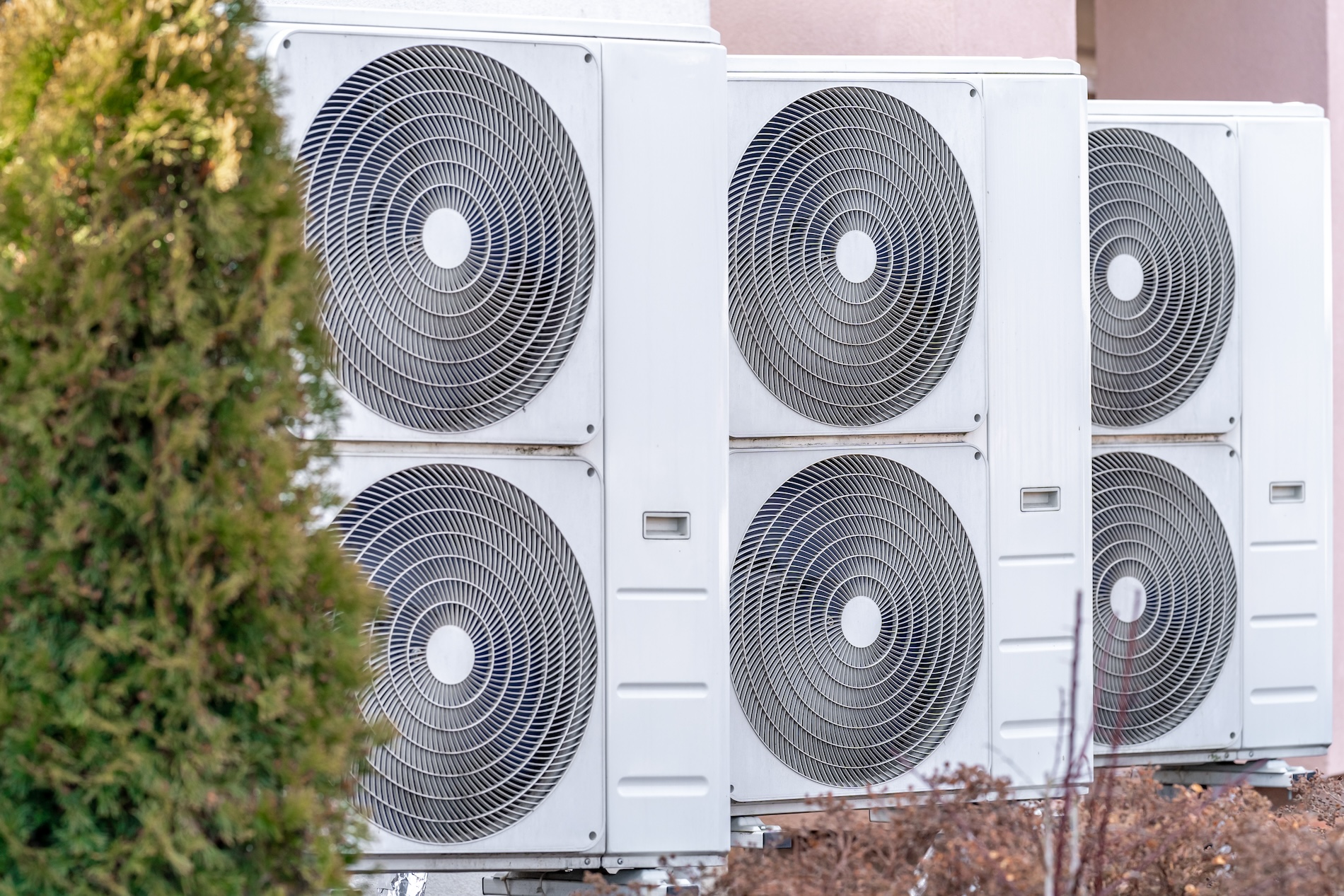When your air conditioner stops working right in the middle of summer, it’s not always a major part that’s the problem. Something as small as a clogged condensate drain line can lead to big issues inside your Batavia home. Water backups, reduced system performance, and even water damage can all start with this hidden part of your AC system. Many homeowners don’t even realize this line exists until something goes wrong.
Since July tends to be one of the hottest months in Batavia, it’s important to keep your system running without problems. A blocked drain line can cause water to pool around your unit, make the air feel damp inside, and sometimes even shut down the system. Understanding how the drain line fits into your air conditioning system and what might clog it can help you stay ahead of these problems and avoid unnecessary repair visits.
How AC Condensate Drain Lines Work
As your air conditioner cools your home, it also removes moisture from the air. This moisture collects and turns into water, which needs somewhere to go. That’s where the condensate drain line comes in. It’s a small pipe that connects to your indoor AC unit and allows the water to safely drain out, usually outside your house or into a designated drain.
The drain line typically works along with the drip pan. Moisture collects in the pan and flows through the line. If everything is working correctly, you’ll never notice this process. But when the line becomes clogged or disconnected, the water has nowhere to go. This can lead to water leaks and cause the system to shut off to prevent further damage. That’s why part of regular AC maintenance in Batavia should include checking for clogs in the drain line, especially during the peak of cooling season.
You might picture it like the condensation pipe under a kitchen sink. If that pipe gets stuck or dirty, water will start backing up instead of draining. The same thing happens with your AC drain line. It has a job to do, and when something blocks it, your AC can’t run properly.
Common Causes of Condensate Drain Line Clogs
Several things can lead to a blocked AC drain line, especially when your system is running for long hours during warm Batavia summers. Over time, small particles and moisture can create buildup inside the line. Once it gets blocked, water has only one place to go—back into your home or AC unit.
Here are some of the most common reasons these clogs form:
– Dust and debris: Dirty filters or indoor air can introduce dust that travels into the drain line. Once moisture mixes in, it can build up into a slimy clog.
– Algae or mold growth: The damp environment inside the line is a perfect place for algae to grow, especially if any dirt collects in the drip pan. This can lead to green slime blocking water flow.
– Insects or small nests: Sometimes insects crawl into the end of the drain pipe outside, especially if it’s low to the ground. That can cause full blockage or slow drainage.
– Poor installation: If the drain line was installed with improper slope or using low-quality connections, it can sag or crack. These issues lead to standing water and make it easier for clogs to form.
– Lack of maintenance: A neglected system allows buildup to grow unnoticed. Without regular cleaning or inspection, a minor blockage can turn into a full clog quickly.
If your home’s air has felt extra damp or you’ve noticed water near the AC unit, it might be time to have the drain line checked. A clogged line may seem like a small part, but it can affect the comfort and safety of your living space during the hottest weeks of the summer.
Signs Your Condensate Drain Line Is Clogged
When your AC’s condensate drain line backs up, it usually doesn’t stay hidden for long. The system tries to continue operating, but the effects of the clog start to show up quickly, especially during periods of high use like July in Batavia. If you know what to look for, you can catch the issue early and avoid more serious impacts to your system or indoor comfort.
Some of the warning signs you might notice include:
– Water puddles around your AC’s indoor unit, especially beneath the air handler or in nearby corners
– Musty or damp odors near vents, around the AC unit, or inside the room where the unit is located
– Unexplained rise in indoor humidity, even when the AC is set to a stable temperature
– Water streaks or stains on indoor walls or ceilings near the unit
– The system shuts off unexpectedly or fails to power back on, especially if there’s a built-in safety switch
Ignoring these signs can make the situation worse. For instance, small puddles can soak into nearby flooring and drywall, leading to water damage or mold. A rise in humidity can also affect more than comfort. It can make the air feel heavier and might even trigger issues for people sensitive to allergens.
Some homeowners try to treat surface symptoms like mopping up the water or spraying air fresheners for odor, but the problem almost always comes back until the clog is removed. Getting the drain line inspected is the most direct way to stop the issue from happening again.
Preventing Future Clogs in Your Batavia AC System
Once your AC’s condensate drain line is cleared, the next step is keeping it that way. Regular maintenance is the strongest defense against future blockages, especially during hot and muggy months when your system runs longer.
Here are a few practical ways to reduce the chance of clogs:
1. Schedule consistent AC checkups. A seasonal maintenance appointment before peak summer use helps keep the drain line and other parts running clean.
2. Clean the drain pan and line regularly. Even a small buildup of grime or algae can start a clog. Simple cleaning methods done by our professionals can help clear out debris safely.
3. Use a high-quality air filter. Cheap or old filters let through more dust, which can end up in the pan and drain line. A good filter captures more particles before they can cause trouble.
4. Replace filters every one to three months. During periods of high use, such as mid-summer in Batavia, more frequent replacements may be needed.
5. Install a float switch if you don’t have one already. It can alert you or shut off the system automatically if the water starts to rise due to a clog.
Homeowners in Batavia who add these small steps into their AC routine often see better performance and fewer repair needs. It doesn’t take much for mold or debris to form in those damp spaces, so consistency matters. One missed season of maintenance can lead to a clog that shuts the system down unexpectedly on a hot afternoon.
Ensuring Smooth AC Operation in Batavia
Comfort in your Batavia home depends on more than just cooling air. It also depends on how well your AC system manages moisture. A clogged condensate drain line may seem minor, but its impact on performance, air quality, and safety makes it something worth keeping an eye on throughout the summer.
When the drain line is clear and the system is draining properly, it works as it should by keeping the indoor environment dry, cool, and balanced. On the other hand, when water can’t escape, it pushes back into your home or forces the AC to shut off. These kinds of malfunctions can be avoided with inspections that catch buildup before it turns into a full clog.
For homes that have experienced water problems in the past, now is the time to start fresh with a proper maintenance schedule. Making sure the condensate line, drip pan, and filters are clean goes a long way toward keeping cooling steady and your indoor spaces comfortable. You don’t have to wait for a visible problem to act. If your AC has had a clog before, or if it runs constantly through the summer season, that extra layer of attention can make a difference.
Timely care helps the system hold up to Batavia’s heat, reduces the risk of water-related damage indoors, and keeps air moisture where it belongs outside. Regular service keeps your AC drainage on track so you can focus on enjoying cooler air, not cleaning up leaks.
For homeowners who want to avoid unexpected breakdowns and maintain reliable cooling throughout Batavia, investing in regular AC maintenance in Bataviacan help safeguard your comfort during the hottest summer days. Trust Frontier Heating to perform thorough inspections and prevent clogs before they lead to costly repairs. For a quick estimate or to book a service visit, please contact us today.








